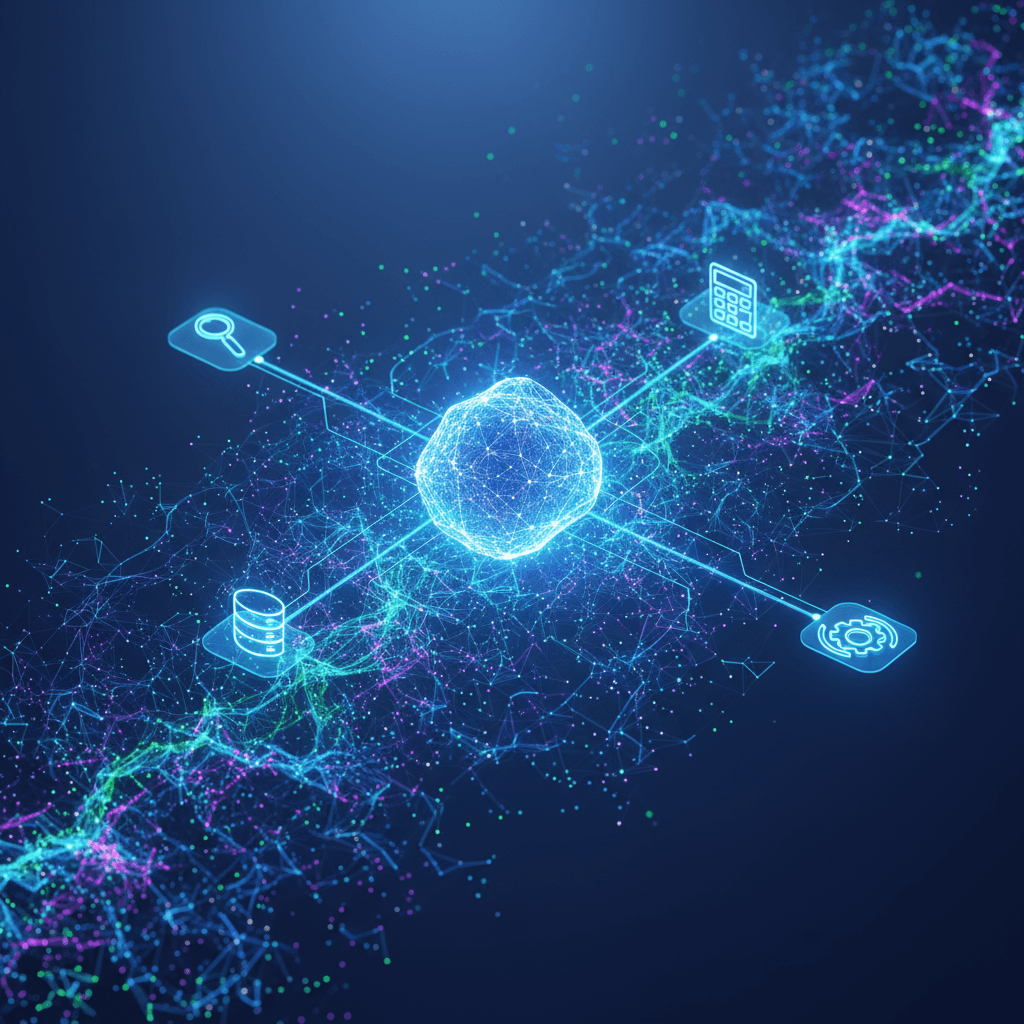TOUCAN Dataset Powers Open-Source AI Agents to Master Real Tools
MIT-IBM's TOUCAN dataset unleashes open-source AI, proving high-quality data, not model size, drives real-world tool mastery.
October 7, 2025

A major new resource has been released in the field of artificial intelligence, aimed at accelerating the capabilities of open-source AI agents. A collaborative research team from the MIT-IBM Watson AI Lab, the University of Washington, and IBM has introduced TOUCAN, the largest publicly available dataset designed for training AI agents to interact with software tools.[1][2][3] Containing over 1.5 million detailed interaction scenarios, this dataset addresses a critical bottleneck that has hindered the progress of open-source models, potentially leveling the playing field in a domain largely dominated by proprietary systems developed by major tech companies.[2][4][3] The release of TOUCAN signifies a strategic shift in AI development, emphasizing the importance of high-quality, realistic training data over sheer model size.[1]
The primary challenge facing the open-source AI community has been a scarcity of high-quality, permissively licensed training data specifically for "tool-agentic" tasks.[2][4][5][3] For an AI to function as a capable agent, it must learn to automate complex workflows by using external software "tools"—such as web search APIs, calculators, or databases—to answer questions and complete tasks. Existing datasets have often been limited in their diversity, realism, and complexity, frequently relying on simulated tool responses rather than real-world interactions.[1][4] This meant that AI agents trained on such data would often fail when confronted with the messy, unpredictable nature of real software tools, which can return errors, incomplete information, or unexpected formats.[1] Furthermore, previous datasets were often too small or lacked the complexity needed to teach agents how to handle multi-step reasoning, use multiple tools in parallel, or engage in multi-turn conversations with a user.[2][4]
TOUCAN was created to directly address these shortcomings through a focus on scale and realism. The dataset is built upon nearly 500 real-world environments known as Model Context Protocols (MCPs), which act as a standardized interface, or a kind of universal adapter, that makes it easier for large language models to connect with and use a wide array of tools.[1] This foundation allowed the research team to generate 1.5 million "trajectories," or task scenarios, involving more than 2,000 different real-world tools.[4][6] A key innovation of TOUCAN is its use of actual tool executions; instead of simulating what a tool might return, the dataset captures the authentic, often imperfect, results of real API calls.[1][2][4] This process ensures the data is diverse and accurately reflects the challenges an AI agent would face in a live environment, training it to be more robust and adaptable.[1] The creation pipeline was a systematic, five-stage process that included synthesizing a wide variety of tasks using multiple AI models to avoid bias, followed by rigorous filtering to ensure the quality, verifiability, and stability of the tasks before the final agent interactions were generated and recorded.[1][2][3]
The implications of TOUCAN's release for the AI industry, particularly for the open-source community, are significant. The research demonstrates that models fine-tuned on the TOUCAN dataset show a marked improvement in performance, with smaller open-source models becoming competitive with, and in some cases outperforming, much larger closed-source models on key industry benchmarks.[1][2][6][5][3] This suggests that investing in better, more realistic data can provide more value than simply scaling up a model's parameter count, a finding that could democratize the development of sophisticated AI agents.[1] By making smaller, more efficient models more capable, TOUCAN empowers startups, university labs, and individual researchers who lack the massive computational resources of large tech corporations.[1] This focus on high-quality data as a primary driver of performance could accelerate innovation and make advanced automation accessible to a much broader audience, fostering a more diverse and competitive AI ecosystem.[1]
In conclusion, the TOUCAN dataset represents a foundational contribution to the open-source AI movement. By providing a massive, realistic, and complex set of training examples for tool-using agents, it directly tackles a major obstacle that has limited the capabilities of non-proprietary models. The immediate performance gains shown by models trained on this data highlight a crucial insight: the quality of training data is as important, if not more so, than the size of the model itself. As TOUCAN becomes more widely adopted, it is expected to spur the development of more robust, reliable, and intelligent open-source AI agents capable of handling complex, real-world tasks, thereby pushing the entire field of artificial intelligence forward.